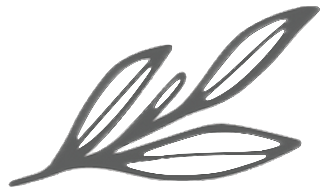Rest and Remember and “Wellness Tourism”
When I tell people that Rest and Remember, the Yoga and cultural retreat I’m co-hosting this September in Ghana, isn’t wellness tourism, they often have questions.
“What does that mean?” they ask, and, “How is what you’re doing different?”
I think of wellness tourism as an example of ways the wellness industry prioritizes profits over people’s genuine well-being. In the wellness industry, wellness is presented as one’s individual responsibility—it’s stripped of all context, including the systemic issues that contribute to poor health outcomes, the community and connections needed for healing, and the land that we’re on. It encourages escape, without examining what we’re trying to escape from or why—or at whose expense that escape comes. And in doing so, it often erases the very histories, cultures, and communities that make a place sacred in the first place.
But the truth is, wellness can’t be achieved in a vacuum. Healing happens in connection with others, in dialogue with culture, and with integrity and care for the land. The idea that caring for ourselves is even possible without caring for others or for the earth is a delusion rooted in scarcity and separation. When we care for our bodies, we are more able to care for our communities. When we listen to the land, we remember that we belong to something greater. When our communities care for each other, everyone moves toward wellness. Rest and Remember was created with this truth in our hearts and minds.
This retreat isn’t about checking out—it’s about checking in. Not just with ourselves, but with history, with others, and with the places we’re entering. We recognize that our healing and the healing of the whole are inexorably linked. And we’re going to Ghana not as consumers of experience, but as guests. With humility. With care. With deep attention.
This retreat was born from relationship. My co-host, Eunice Busby, has been leading thoughtfully curated journeys through Ghana for years—always in partnership with local guides, historians, and artisans. And my own journey in Ghana revealed something I hadn’t known I was looking for—an awakening to the stories I carry and the ancestors who walk with me. When Eunice and I decided to co-create this retreat, it wasn’t to offer an escape. It was to offer a sacred return—to body, to lineage, to the land, and to one another.
So when people ask what makes this retreat different, I tell them:
This isn’t wellness as indulgence or escape. Yes, we’ll rest. Yes, we’ll move and breathe and reflect. But we’ll also hold our own well-being as part of collective healing. We’ll sit with discomfort and beauty. We’ll learn from history and witness how it still lives in the present. We’ll take time to acknowledge the ancestors—those in our hearts and those whose names we may never know. And we’ll do all of this in community, guided by values of reciprocity and remembrance.
We’re not traveling to Ghana to find ourselves. We’re traveling to remember who we’ve always been—part of a larger web of life, shaped by ancestors and shaping what comes next.
